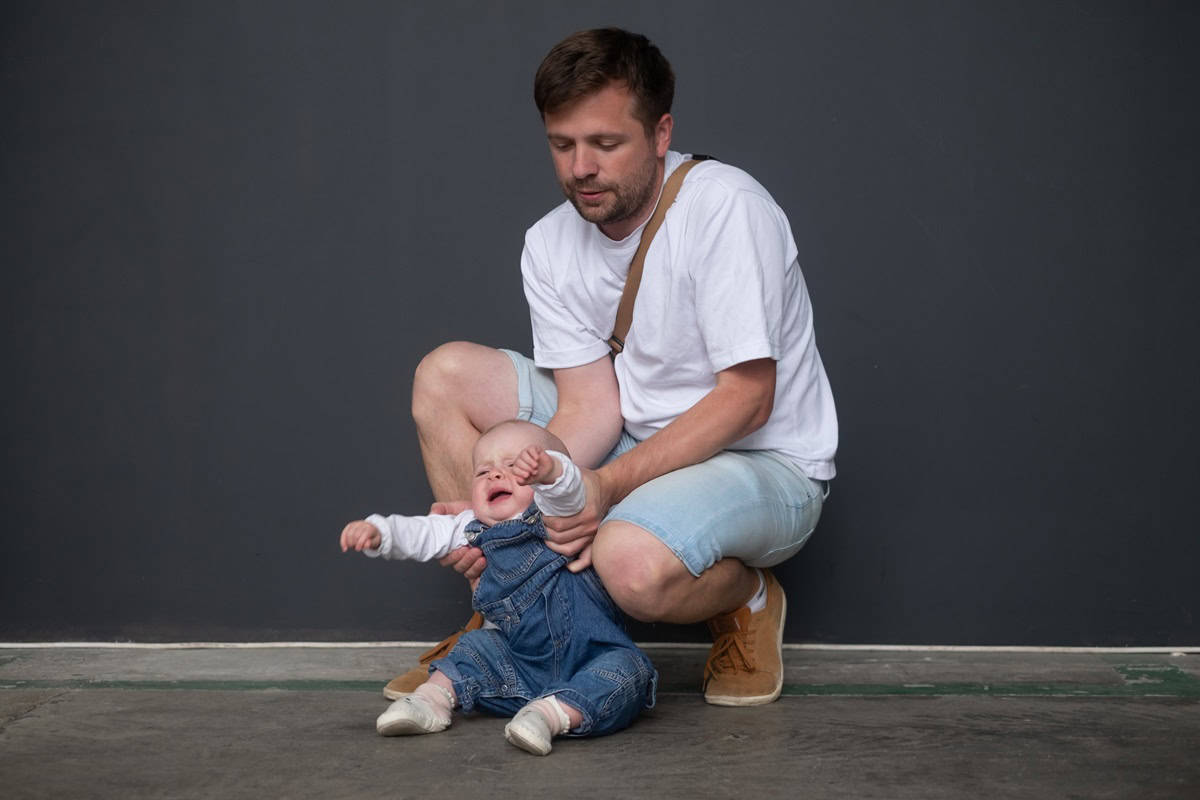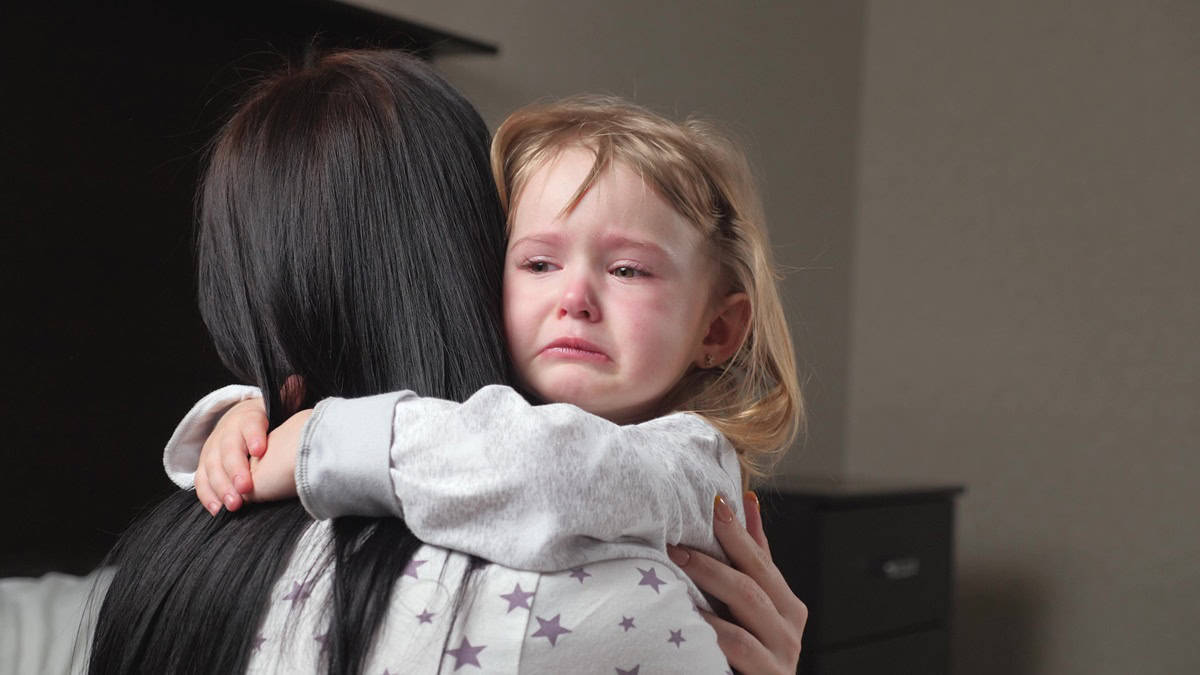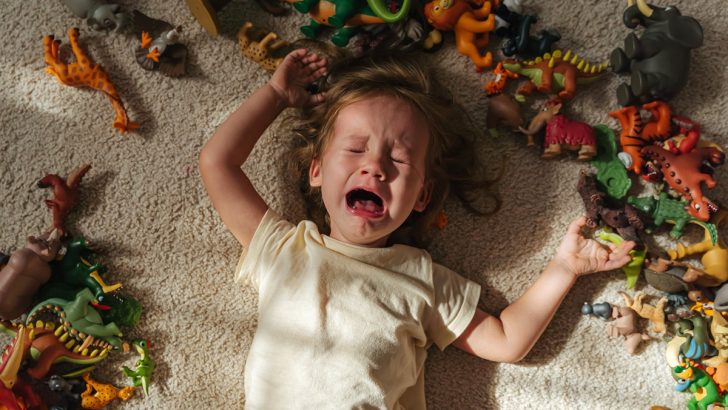Toddler tantrums are very common and can occur at any time, any place. Anything can set them off and you’re never safe. What didn’t set them off yesterday might set them off today.
The reason tantrums happen is because your child is navigating feelings they haven’t encountered before.
As adults, we can always rely on our experience, while toddlers can’t. They don’t have any!
You as a parent need to step up and help them navigate these emotions. More often than not, your child wants independence that they’re not ready for.
This wish, along with not having enough experience and tools for it, can lead to mixed emotions, intense mood swings and frustration.
During a toddler tantrum, you need to keep your cool and work together to get to the root of the problem.
If you want to breeze through these difficult times, read on to find tips and tricks on how to handle your toddler’s temper tantrums!
1. Keep Calm During Toddler Tantrums

If you resort to yelling and punishing, you’ll only get the opposite of what you’re trying to achieve. You need to understand that your child is just afraid of their own emotions.
By keeping calm, you’ll have a calming effect on them as well! Try hugging or holding them, while saying loving words. This will make them feel safe and help them to calm down!
2. Remember: You’re the Adult

It’s easy to respond to a tantrum with anger and shouting, but keep in mind that you’re the adult in this situation and this is a teaching moment for them.
If you’re in public or have company, go to a different room or outside and explain calmly why you did this. Stay with them until they calm down!
3. Rewards Won’t Help with Toddler Tantrums

When your toddler is going through these emotions, explaining things or rewarding them won’t help.
Rewards can range from you caving in and buying them something you previously said no to, just to shut them up, to pleading and begging them, since they wanted attention.
4. Neither Will Punishment

Punishment doesn’t work either. If you put your toddler into time-out, they will feel alone and even more scared.
This will lead to problems when they’re older, especially with stress and self-soothing. It can also lead to them not trusting you in the future since they couldn’t rely on you during these moments.
Punishment like time-outs can be used, but only at times when your child has intentionally hurt someone or when they aren’t too emotional.
Keep your cool and try talking them through these emotions, then let them sit on it for a little bit until they fully calm down.
5. Talk It Out After the Tantrum

During a tantrum, your toddler is filled with all sorts of emotions and reasoning with them is pointless. After the worst is over, hold your child close and let them know you’re there for them.
Try and understand what they wanted to say and let them know you didn’t understand them while they were kicking and screaming.
6. Show Affection

Showing love and affection post tantrum is the most important step.
Your child needs to know that you still love and care for them.
This way you are rewarding good behavior- the fact that your child managed to calm down- and you’re setting healthy coping with emotions.
7. Be Attentive to Their Needs

A lot of toddlers and children throw tantrums because they’re under a lot of stress. You need to be attentive to your child’s needs.
Ask yourself: are they Hungry? Angry? Lonely? or Tired? The HALT method is most commonly used and often one of these is causing stress to your child.
Bear in mind other stress-inducing factors as well. Maybe you’re having a busy week and they need attention, or maybe there are some family disputes that make your toddler emotional.
8. Don’t Push Any Buttons

As time passes, you’ll learn what sets off your toddler. When you find out, simply don’t do those things! Don’t push their buttons and avoid tantrum-inducing situations.
However, a tantrum might happen anyway, especially when eating or going to the store. Your best course of action is finding ways to distract them.
Ask them questions or bring their favorite snacks and toys!
9. Reward Them Accordingly

As I’ve said, using rewards during tantrums is not a good idea, however using rewards after they’ve calmed down promotes good behavior.
Ignore bad behavior to show them that it is not acceptable and reward good behavior once they have calmed down.
10. Be Consistent

Tantrums aren’t a one and done kind of deal. They are going to happen time and time again, but don’t lose hope!
Toddler tantrums are a phase and, with your help, they will develop healthy habits. Stick by their side and help them navigate these confusing emotions.
Once you realize what makes your child tick, you’ll be able to help them manage these outburst and with time you’ll start seeing positive results!
Conclusion
Toddler tantrums are a phase every toddler goes through. Some tantrums will be minor and some will be severe. With time you’ll get the hang of it and you’ll be able to navigate their emotions with them.
Remember to keep calm, stay consistent and show your toddler that their feelings are valid and that you care!

